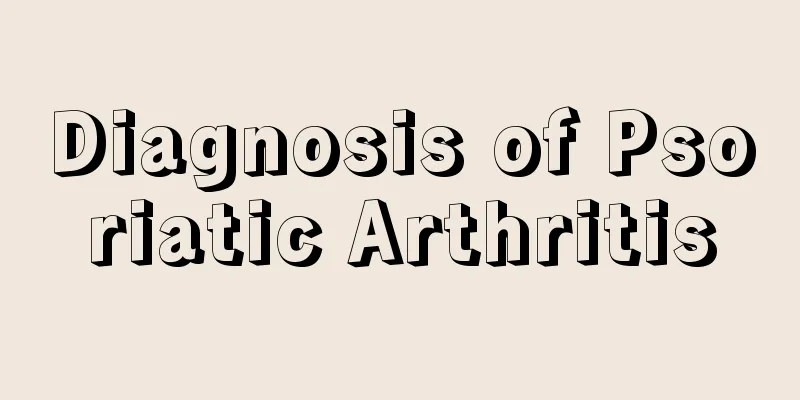Diagnosis of Psoriatic Arthritis

|
Psoriatic arthritis is a complication of psoriasis. We all know psoriasis, it is a skin disease, but it is also a blood disease. Psoriasis is often accompanied by arthritis. Psoriatic arthritis (PsA) is an inflammatory joint disease associated with psoriasis that presents with a psoriatic rash and is associated with pain, swelling, tenderness, stiffness, and movement disorders in the joints and surrounding soft tissues. Some patients may have sacroiliitis and/or spondylitis, with a prolonged course of disease and prone to relapse. In the late stage, joint ankylosis may occur. In about 75% of patients, the rash occurs before arthritis, in about 15% it occurs simultaneously, and in about 10% it occurs after arthritis. The disease can occur at any age, with the peak age being 30 to 50 years old. There is no gender difference, but the spine is more likely to be affected in men. Causes: 1. Genetic factors The disease often tends to cluster in families, with the prevalence rate in first-degree family members as high as 30% and the risk of disease in monozygotic twins being 72%. The domestic report on family history is 10% to 23.8%, while the foreign report is 10% to 80%. The disease is inherited in an autosomal dominant manner with incomplete penetrance, but some people also believe it to be autosomal recessive or sex-linked. 2. Infectious factors (1) Viral infection: Some people have given antiviral treatment to patients with psoriasis accompanied by viral infection, and the symptoms of psoriatic arthritis have been alleviated accordingly. (2) Streptococcal infection: It is reported that about 6% of patients have a history of pharyngeal infection and upper respiratory tract symptoms, and their anti-O titer is also increased. (3) Endocrine dysfunction: The relationship between psoriasis and the functional status of endocrine glands has long attracted people's attention. (4) Neuropsychiatric disorders: Previous literature often reported that mental factors are related to this disease. For example, mental trauma can cause the onset of this disease or aggravate the condition. It is believed that this is due to the increase in vasomotor nerve tension after mental stimulation. (5) Others: Most patients experience relapses or worsening of symptoms in winter and relief or spontaneous regression in summer, but the seasonal regularity disappears in patients with long-term illness. For some women, the symptoms worsen before and after menstruation, the rash disappears during pregnancy, and recurs after delivery. Once we understand the cause of psoriatic arthritis, it is not difficult to see that it is a stubborn disease. However, as long as we know the cause, we can prevent the occurrence and development of the disease, which is beneficial to our health. |
<<: Knowledge about hereditary angioedema
>>: How to correctly view the positive of mycoplasma and chlamydia
Recommend
Special features of radiotherapy for patients with advanced ovarian cancer
Advanced ovarian cancer is difficult to treat and...
What are the symptoms of laryngeal cancer metastasis
Because each laryngeal cancer patient has a diffe...
Nipple discharge is the most common typical symptom of breast cancer
Many times, the symptoms of breast cancer are not...
Six drinking water taboos to avoid in midsummer
We sweat a lot in summer, so we must drink water ...
What are the ways to prevent liver cancer? The 6 most effective ways to prevent liver cancer
Control your drinking, which means no more than t...
How long does nerve repair take
Nerve repair takes about three months to six mont...
How to prevent liver cancer? Pay attention to 5 dietary points to keep liver cancer away from you
Liver cancer has made many people feel very painf...
Why do you get varicose veins
Varicose veins are a very common disease in daily...
My butt itches in the middle of the night
When you find your butt itchy in the middle of th...
How to deal with a non-stick pan when using it for the first time?
A non-stick pan is a new type of edible pan. The ...
Leather jacket matching, what are the leather jacket matching skills
In daily life, what are the skills of leather jac...
How to fold clothes to look better
In life, many people have their own little tricks...
What are vasodilators
Vasodilators are preparations that have the effec...
What causes tinnitus and dizziness
Health is something that deserves everyone's ...
What are the ways to speed up blood circulation
Blood circulation problems have become a particul...









